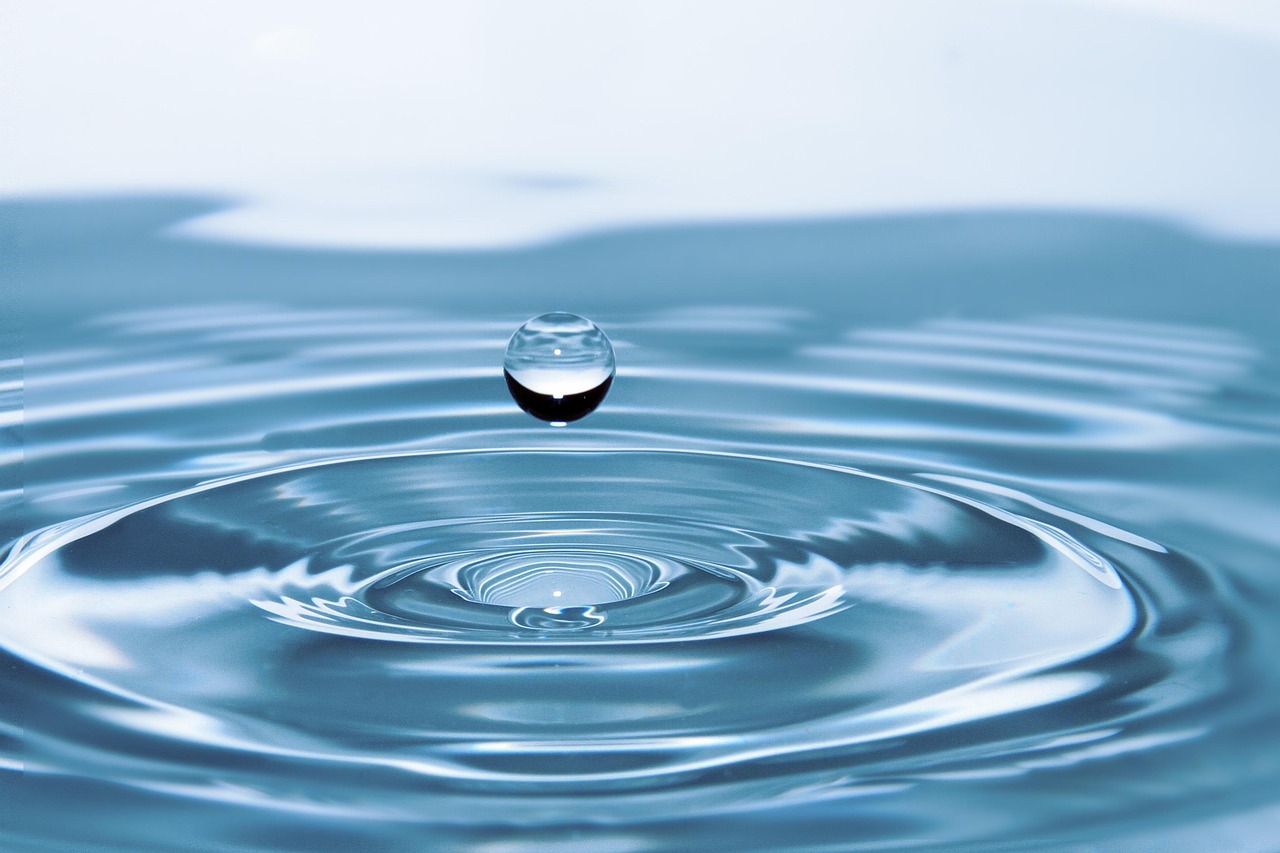This article delves into the profound insights gained by Gary Brecka during his water fasting journey. It examines the various health benefits, the scientific foundations supporting these claims, and how individuals can incorporate water fasting into their modern wellness routines.
What is Water Fasting?
Water fasting is a practice that involves abstaining from all food and caloric beverages, consuming only water for a designated period. This method has been utilized for centuries across different cultures for both health and spiritual reasons. Many individuals turn to water fasting as a means of detoxification, weight management, and mental clarity.
Health Benefits of Water Fasting
Research indicates that water fasting can yield significant health improvements. Some of the most notable benefits include:
- Weight Loss and Metabolic Efficiency: Water fasting can lead to a caloric deficit, promoting weight loss. By reducing caloric intake, the body can enhance its metabolic efficiency and fat oxidation.
- Improved Insulin Sensitivity: Fasting may also improve insulin sensitivity, helping to regulate blood sugar levels and potentially lowering the risk of type 2 diabetes.
- Cellular Repair and Autophagy: One of the most fascinating aspects of water fasting is its ability to trigger autophagy, a process where cells eliminate damaged components, which may contribute to longevity.
Gary Brecka’s Personal Experience with Water Fasting
Gary Brecka’s journey through water fasting has allowed him to uncover its transformative effects on health. Initially, he faced challenges such as hunger and mental fatigue. However, as he progressed, he experienced enhanced mental clarity and focus, attributed to the body’s adaptation to fasting.
The Science Behind Water Fasting
Scientific studies have explored fasting’s effects on various health markers, including inflammation and cholesterol levels. This growing body of evidence supports the potential benefits of water fasting. Experts in nutrition emphasize the importance of individual health status when considering a water fast, highlighting the need for personalized approaches.
Practical Tips for Water Fasting
For those interested in embarking on a water fast, here are some practical tips:
- Preparation: Gradual dietary changes leading up to the fast can enhance the experience. Ensure you are well-hydrated before starting.
- During the Fast: Listen to your body, and if you experience severe discomfort, consider breaking the fast.
- Post-Fast Refeeding Strategies: Breaking a fast should be done gradually. Start with light, easily digestible foods to avoid digestive distress.
Water fasting can be a powerful tool for improving health, but it is essential to approach it with care and consideration. By understanding the insights gained from Gary Brecka’s experiences and the scientific evidence surrounding water fasting, individuals can make informed decisions about incorporating this practice into their wellness routines.

What is Water Fasting?
Water fasting is a practice that involves the complete abstention from all food and caloric beverages, allowing only the consumption of water for a predetermined duration. This method has been utilized for centuries, with roots in various cultures for both health and spiritual purposes. In recent years, it has gained popularity as a modern wellness trend, drawing attention for its potential health benefits and transformative effects on the body.
During a water fast, individuals typically refrain from eating solid foods and drinking anything other than water. This can range from a short duration of 24 hours to extended periods lasting several days or even weeks. The practice is often initiated with the goal of detoxification, weight loss, or achieving mental clarity. Understanding the physiological changes that occur during fasting is crucial for anyone considering this practice.
As the body transitions into a fasting state, it undergoes several significant changes. Initially, the body utilizes glycogen stores for energy, which are derived from carbohydrates. However, as these stores deplete, the body shifts to a state of ketosis, where it begins to burn fat for fuel. This metabolic shift is one of the reasons why water fasting is often associated with weight loss and improved metabolic health.
Water fasting is not only a physical challenge but also a deeply spiritual practice for many. Various religious traditions incorporate fasting as a means of purification, reflection, and spiritual growth. For instance, in Christianity, fasting is often observed during Lent, while in Islam, fasting during Ramadan is a fundamental practice. These traditions highlight the multifaceted nature of fasting, which can serve as a tool for both physical and spiritual rejuvenation.
Numerous studies have explored the health benefits associated with water fasting. Research indicates that fasting can lead to improved insulin sensitivity, reduced inflammation, and enhanced cellular repair processes. One of the most compelling benefits is the activation of autophagy, a natural process where the body cleans out damaged cells and regenerates new ones, potentially contributing to longevity.
Before embarking on a water fast, it is essential to prepare adequately. Consulting with a healthcare professional is advisable, especially for individuals with underlying health conditions. Gradual dietary changes leading up to the fast can help ease the transition. Additionally, ensuring proper hydration and listening to your body throughout the process are key components for a successful fasting experience.
Breaking a fast should be approached with caution. After a water fast, the body may be sensitive to food, and refeeding should be done gradually. Starting with easily digestible foods such as broths or smoothies can help minimize digestive discomfort and maximize the benefits acquired during the fasting period. This careful approach to refeeding is crucial for maintaining the health benefits achieved during the fast.
In summary, water fasting is a profound practice that encompasses both health and spiritual dimensions. With its historical roots and modern applications, it offers a unique avenue for individuals seeking to enhance their wellness journey. Whether for detoxification, weight loss, or spiritual clarity, understanding the principles and practices of water fasting can empower individuals to make informed decisions about their health.

Health Benefits of Water Fasting
Water fasting, an ancient practice, has gained renewed interest in recent years due to its potential health benefits. Numerous studies suggest that this method can lead to significant improvements in various aspects of health. Let’s delve into some of the most notable benefits of water fasting.
One of the primary advantages of water fasting is its positive impact on metabolic health. Research indicates that fasting can enhance insulin sensitivity, which is crucial for regulating blood sugar levels. Improved insulin sensitivity not only helps in managing weight but also reduces the risk of developing type 2 diabetes.
Water fasting can be an effective strategy for weight loss. By significantly reducing caloric intake, individuals often experience a caloric deficit, leading to weight reduction. During fasting, the body shifts its energy source from glucose to stored fat, promoting fat oxidation. This metabolic shift can lead to sustainable weight loss over time.
- Initial glucose stores are depleted, prompting the body to utilize fat for energy.
- Hormonal changes during fasting enhance fat breakdown and utilization.
- Caloric deficit created through fasting accelerates fat loss.
Another compelling aspect of water fasting is its ability to trigger autophagy. This cellular repair process allows the body to remove damaged cells and regenerate healthier ones. Autophagy is linked to longevity and improved overall health, making water fasting an intriguing option for those seeking to enhance their well-being.
Water fasting has also been shown to reduce inflammation. Chronic inflammation is associated with various health issues, including heart disease and autoimmune disorders. Studies suggest that fasting can lower inflammatory markers, which may contribute to a reduced risk of these conditions.
Scientific research supports many claims associated with water fasting. Multiple studies have explored its effects on health markers such as cholesterol levels, blood pressure, and overall longevity. These studies contribute to a growing body of evidence that underscores the potential benefits of water fasting.
Beyond physical health, water fasting can also have profound effects on mental clarity and focus. Many individuals report enhanced cognitive function during fasting periods, which may be attributed to the body’s adaptation to fasting and the reduction of brain fog.
While water fasting offers numerous benefits, it is essential to acknowledge the challenges faced during the initial stages. Common issues include hunger pangs and mental fatigue. However, as the body adapts to fasting, many people experience improved mental clarity and heightened focus.
For those considering water fasting, implementing practical strategies can enhance the experience and outcomes:
- Preparation: Gradually reduce food intake and ensure adequate hydration before starting the fast.
- Duration: Determine an appropriate fasting period based on individual health and goals.
- Post-Fast Refeeding: Break the fast gradually to prevent digestive distress and maximize benefits.
In summary, water fasting presents a range of potential health benefits, from improved metabolic health and weight loss to enhanced cellular repair processes and reduced inflammation. As research continues to explore the depths of fasting, individuals are encouraged to approach this practice with careful consideration and mindfulness.
Weight Loss and Metabolism
Water fasting, a practice that involves consuming only water for a designated period, has gained popularity in recent years due to its potential health benefits. Among these benefits, its impact on weight loss and metabolism stands out. This section delves into how water fasting can facilitate weight loss and enhance metabolic processes, based on scientific findings and expert opinions.
Water fasting can significantly promote weight loss by drastically reducing caloric intake. When individuals engage in a water fast, they consume no calories, which creates a substantial caloric deficit. This caloric deficit is essential for weight loss, as the body begins to utilize stored energy reserves, primarily fat, to meet its energy needs.
In addition to weight loss, water fasting can enhance metabolic efficiency. During fasting, the body undergoes a metabolic shift, transitioning from burning glucose to utilizing fat as its primary energy source. This process not only aids in fat oxidation but also improves the body’s ability to metabolize fat more effectively over time. Studies have shown that this shift can lead to increased fat loss and improved body composition.
| Metabolic Changes During Water Fasting | Effects |
|---|---|
| Increased Fat Oxidation | Utilization of stored fat for energy |
| Enhanced Insulin Sensitivity | Better blood sugar regulation |
| Improved Cellular Repair | Boosts autophagy processes |
Moreover, water fasting can lead to improved insulin sensitivity. Enhanced insulin sensitivity is crucial for regulating blood sugar levels, which can help reduce the risk of type 2 diabetes. When the body becomes more sensitive to insulin, it can manage glucose levels more effectively, further supporting weight loss efforts.
Another important aspect to consider is the role of autophagy, a process triggered by fasting. Autophagy allows the body to remove damaged cells and regenerate new ones, contributing to overall health and longevity. This cellular repair mechanism can also influence metabolic efficiency, as healthier cells are better equipped to utilize energy.
While the benefits of water fasting are promising, it is essential to approach this practice with caution. Individuals interested in water fasting should consult with healthcare professionals, especially if they have pre-existing health conditions or concerns. Gradual preparation and understanding one’s body response during fasting can help mitigate potential challenges such as hunger pangs or fatigue.
In summary, water fasting offers significant potential for weight loss and metabolic enhancement through caloric deficit, increased fat oxidation, improved insulin sensitivity, and cellular repair. With careful planning and consideration, this practice can be a valuable tool for those seeking to improve their health and wellness.
How Does Water Fasting Affect Fat Loss?
Water fasting is gaining popularity as a method for achieving weight loss and improving overall health. One of the most significant aspects of this practice is its effect on fat loss. Understanding how water fasting influences the body’s energy utilization can provide insights into its effectiveness as a weight-loss strategy.
During a water fast, the body undergoes a remarkable transition in its energy sources. Initially, the body relies on glucose stored in the liver and muscles for fuel. However, as the fast progresses and these glucose reserves deplete, the body begins to adapt by shifting to a different energy source: stored fat.
This metabolic shift is crucial for fat loss. When the body starts to burn fat for energy, it enters a state known as ketosis. In ketosis, fat molecules are converted into ketones, which serve as an alternative energy source for the brain and other organs. This process not only promotes fat loss but can also lead to enhanced mental clarity and focus, as many individuals report experiencing during their fasting journeys.
Furthermore, the caloric deficit created by abstaining from food during a water fast plays a significant role in weight loss. When the body is not receiving calories from food, it must rely on its energy reserves, primarily fat. This results in a gradual reduction of body fat percentage over time. Studies have shown that individuals who engage in water fasting can achieve substantial fat loss, particularly when combined with a healthy lifestyle and regular exercise.
Another important factor to consider is the impact of water fasting on hormonal balance. During fasting, insulin levels drop significantly. Lower insulin levels facilitate fat breakdown and inhibit fat storage, making it easier for the body to utilize stored fat for energy. Additionally, fasting can increase levels of human growth hormone (HGH), which is known to promote fat loss and muscle preservation.
It’s also worth noting that while water fasting can be an effective method for fat loss, it is essential to approach it with caution. Individuals should consider their personal health status and consult with a healthcare professional before starting a fasting regimen. Fasting may not be suitable for everyone, particularly those with certain medical conditions or dietary restrictions.
In summary, water fasting can lead to effective fat loss by shifting the body’s energy utilization from glucose to stored fat. This metabolic adaptation, combined with hormonal changes and a caloric deficit, can result in significant weight loss over time. However, it is crucial to approach water fasting mindfully and ensure that it aligns with individual health needs and goals.
| Benefits of Water Fasting | Details |
|---|---|
| Fat Loss | Shifts energy source from glucose to fat, promoting fat oxidation. |
| Improved Insulin Sensitivity | Lower insulin levels enhance fat breakdown and reduce fat storage. |
| Increased Mental Clarity | Keto-adaptation provides alternative energy sources for the brain. |
| Hormonal Balance | Elevated levels of HGH support fat loss and muscle preservation. |
- Consult a Healthcare Professional: Before starting a water fast, ensure it is safe for your health.
- Stay Hydrated: Drink plenty of water throughout the fasting period to support bodily functions.
- Listen to Your Body: Pay attention to how you feel and adjust your fasting approach if necessary.
Impact on Insulin Sensitivity
Water fasting has garnered attention not only for its weight loss benefits but also for its profound effects on insulin sensitivity. Insulin sensitivity refers to how effectively the body utilizes insulin to lower blood sugar levels. Improved insulin sensitivity can be a game-changer for individuals at risk of developing type 2 diabetes and those seeking to enhance their overall metabolic health.
Research indicates that water fasting can lead to a significant reduction in insulin resistance. When the body is deprived of food, it enters a state of ketosis, where it begins to burn fat for energy instead of relying on glucose. This shift not only helps in weight loss but also plays a critical role in improving how the body responds to insulin.
During a water fast, the absence of food intake allows insulin levels to drop significantly. Lower insulin levels can facilitate the body’s ability to utilize fat stores for energy, which in turn reduces the demand for insulin production. This cycle can lead to enhanced insulin sensitivity over time, making it easier for the body to manage blood sugar levels effectively.
Understanding the Mechanisms
The mechanisms behind improved insulin sensitivity during water fasting are multifaceted. One key factor is the reduction of inflammation. Chronic inflammation is known to contribute to insulin resistance, and fasting has been shown to lower inflammatory markers in the body. By reducing inflammation, water fasting can create a more favorable environment for insulin action.
Additionally, water fasting may promote the release of certain hormones that aid in metabolic regulation. For instance, fasting can increase levels of adiponectin, a hormone that enhances insulin sensitivity and promotes fat metabolism. Higher adiponectin levels are associated with a lower risk of developing insulin resistance and type 2 diabetes.
Scientific Evidence
Numerous studies support the claim that water fasting can improve insulin sensitivity. A study published in the journal Cell Metabolism found that intermittent fasting, which includes water fasting, resulted in improved insulin sensitivity and reduced insulin levels in participants. Another study in the journal Diabetes Care highlighted that fasting could lead to significant reductions in fasting glucose and insulin levels, further supporting the link between fasting and improved insulin sensitivity.
Practical Implications
For those considering water fasting to enhance insulin sensitivity, it is essential to approach the practice with caution. Consulting with a healthcare professional is advisable, especially for individuals with pre-existing health conditions. Proper preparation, including gradual dietary changes leading up to the fast, can help mitigate potential side effects such as fatigue and dizziness.
Moreover, once the fasting period is over, it is crucial to adopt a balanced diet that supports insulin sensitivity. Incorporating whole foods, healthy fats, and fiber-rich carbohydrates can help maintain the benefits gained during the fast. Regular physical activity also plays a vital role in enhancing insulin sensitivity and overall metabolic health.
In summary, the impact of water fasting on insulin sensitivity is a promising area of research that highlights the potential of fasting as a tool for improving metabolic health. By understanding the underlying mechanisms and implementing safe practices, individuals can leverage water fasting to regulate blood sugar levels and reduce the risk of type 2 diabetes.
Cellular Repair and Autophagy
is a fascinating subject within the realm of health and wellness, particularly in the context of water fasting. This ancient practice has garnered significant attention in recent years due to its profound effects on the body at the cellular level. One of the most compelling benefits of water fasting is its ability to trigger autophagy, a biological process that plays a crucial role in maintaining cellular health and longevity.
Autophagy, derived from the Greek words meaning “self-eating,” is a natural mechanism by which cells degrade and recycle their damaged components. This process is essential for cellular maintenance, allowing the body to remove dysfunctional proteins and organelles, thereby promoting overall cellular health. Research indicates that autophagy may be linked to longevity and a reduced risk of age-related diseases.
During water fasting, the body enters a state of ketosis, where it shifts from using glucose as its primary energy source to utilizing stored fat. This metabolic shift not only aids in weight loss but also catalyzes the autophagy process. As the body begins to break down fat stores, it simultaneously initiates cellular repair mechanisms. This dual action can lead to enhanced energy levels and improved mental clarity, as reported by many individuals who have undergone water fasting.
Furthermore, autophagy is believed to have protective effects against various diseases, including neurodegenerative disorders like Alzheimer’s and Parkinson’s. By clearing out damaged cells and proteins, autophagy may help prevent the accumulation of toxic substances that can lead to these conditions. Studies have shown that fasting can significantly increase the expression of autophagy-related genes, further supporting the idea that intermittent fasting or prolonged water fasting can be beneficial for brain health.
In addition to its implications for brain health, autophagy also plays a vital role in the body’s immune response. When the body is under stress, such as during fasting, autophagy helps regulate inflammation and enhances the immune system’s ability to fight off infections. This is particularly relevant in today’s context, where maintaining a robust immune system is paramount.
To maximize the benefits of autophagy through water fasting, it is essential to approach the practice mindfully. Here are some practical tips:
- Start Slowly: If you’re new to fasting, consider beginning with shorter fasting periods and gradually increasing the duration.
- Stay Hydrated: Drink plenty of water throughout the fasting period to support overall health and facilitate the autophagy process.
- Listen to Your Body: Pay attention to how your body responds during fasting. It’s crucial to stop if you experience severe discomfort or adverse effects.
- Consult a Professional: Before embarking on a water fast, especially for extended periods, consult with a healthcare professional to ensure it’s appropriate for your individual health status.
In summary, the process of autophagy triggered by water fasting presents a remarkable opportunity for cellular repair and overall health enhancement. As scientific research continues to unfold, it becomes increasingly clear that this ancient practice holds significant promise for modern wellness routines. By embracing water fasting and understanding its effects on autophagy, individuals can take proactive steps toward improving their health and potentially extending their lifespan.

Gary Brecka’s Personal Experience with Water Fasting
has become a beacon of inspiration for many seeking to enhance their health and wellness. Through his journey, Brecka has uncovered the profound effects of water fasting, both physically and mentally, and how it can serve as a catalyst for transformation.
Initially, Brecka faced a range of challenges during his water fasting journey. Hunger pangs and mental fatigue were prominent, particularly in the early stages. These experiences are not uncommon for individuals new to fasting. The body undergoes a significant adjustment period as it transitions from a state of regular eating to one of abstaining from food. Brecka emphasizes the importance of mental preparation and setting realistic expectations for those embarking on a similar path.
As he continued with his fasting regimen, Brecka began to notice remarkable changes in his mental clarity and focus. Many individuals report experiencing a heightened sense of awareness and cognitive function during fasting periods. This phenomenon can be attributed to the body’s metabolic shift, where it begins to utilize fat stores for energy instead of glucose. This switch not only aids in fat loss but also enhances brain performance, reducing the fog that often clouds mental clarity.
Understanding the Science of Water Fasting is crucial for anyone considering this practice. Research indicates that water fasting can lead to increased levels of autophagy, a cellular process that removes damaged components and promotes cellular renewal. This process is linked to longevity and improved health outcomes, making fasting an appealing option for those interested in enhancing their well-being.
Moreover, Brecka’s experience aligns with scientific studies that suggest water fasting may improve insulin sensitivity, which is vital for regulating blood sugar levels. This benefit is particularly significant for individuals at risk of type 2 diabetes, as improved insulin sensitivity can mitigate this risk.
Throughout his journey, Brecka has also shared practical tips for those interested in exploring water fasting. Preparation is key; he advises gradually transitioning to a fasting state by reducing food intake and ensuring adequate hydration. This preparatory phase can ease the body into fasting, making the experience more manageable.
Another critical aspect of water fasting is the post-fast refeeding strategy. Brecka stresses the importance of breaking a fast carefully, as improper refeeding can lead to digestive discomfort. He recommends starting with light, easily digestible foods and gradually introducing more complex meals to allow the digestive system to adjust.
In summary, Gary Brecka’s personal journey through water fasting has provided him with invaluable insights into its transformative effects on health and wellness. His experiences highlight both the challenges and benefits of this practice, inspiring many to embark on their own fasting journeys. As more individuals explore water fasting, Brecka’s story serves as a testament to the potential for profound personal transformation through mindful and intentional health practices.
Initial Challenges Faced
In the realm of wellness and health optimization, water fasting has garnered attention for its potential benefits. However, for many embarking on this journey, the initial experience can be fraught with challenges. Gary Brecka, who documented his own water fasting journey, encountered several hurdles that are typical for beginners. Understanding these challenges can help prospective fasters prepare more effectively.
During his early fasting experiences, Brecka faced a variety of obstacles that tested his resolve. One of the most prevalent issues was the onset of hunger pangs. As the body adjusts to a lack of food, it sends signals to the brain indicating a need for sustenance. This can be particularly intense in the first few days of fasting. Many beginners find themselves grappling with these sensations, which can be both uncomfortable and distracting.
Alongside physical hunger, Brecka also experienced mental fatigue. This mental state is common among those new to fasting, as the body undergoes significant changes. Initially, the brain may struggle to adapt to the absence of glucose, which is typically its primary energy source. Consequently, individuals might find it challenging to concentrate or maintain their usual productivity levels.
- Physical Symptoms: In addition to hunger, some may experience headaches, dizziness, or irritability, all of which can be discouraging.
- Emotional Strain: The psychological aspect of fasting can lead to feelings of anxiety or frustration, especially when cravings intensify.
- Social Situations: Engaging in social activities that revolve around food can pose additional challenges, as temptations abound.
Despite these initial hurdles, Brecka’s journey highlights the importance of mental resilience. Many who embark on a water fast report that overcoming these challenges can lead to a profound sense of accomplishment. As the body adjusts, individuals often begin to experience a shift in their relationship with food and hunger.
Furthermore, preparing for a water fast can mitigate some of these challenges. Gradual dietary changes leading up to the fast can help the body acclimate, potentially reducing the intensity of hunger pangs. Staying well-hydrated is also crucial, as dehydration can exacerbate feelings of fatigue and discomfort.
As Brecka progressed through his fasting journey, he discovered that the initial discomfort gave way to a heightened sense of clarity and focus. This transformation is not uncommon; many fasters report enhanced cognitive function as the body adapts to utilizing fat for energy instead of carbohydrates. This shift can lead to a more stable energy level, reducing the mental fatigue experienced at the outset.
In conclusion, while the initial challenges of water fasting can be daunting, they are often temporary. With proper preparation and a strong mindset, individuals can navigate these early difficulties and unlock the potential benefits of fasting. Gary Brecka’s experience serves as a testament to the transformative power of perseverance in the face of challenges.
Transformative Effects on Mental Clarity
In recent years, the concept of water fasting has gained significant traction, particularly for its potential mental health benefits. Among those who have explored this practice is Gary Brecka, whose journey through water fasting has revealed profound insights, especially concerning mental clarity and cognitive focus. As he progressed through his fasting regimen, Brecka reported experiencing enhanced mental clarity and a remarkable increase in focus. This transformation can be attributed to several physiological changes that occur during fasting.
Initially, many individuals may encounter challenges such as hunger pangs and fatigue, which can cloud mental processes. However, as the body adapts to a state of fasting, it undergoes significant metabolic changes. One of the key adaptations involves the brain’s shift from relying on glucose to utilizing ketones as a primary energy source. Ketones, produced from the breakdown of fats, have been shown to provide a more stable and efficient energy supply for the brain. This shift can lead to a reduction in what is often referred to as brain fog, a common complaint among those who consume a high-carbohydrate diet.
Research supports the notion that fasting can enhance cognitive function. A study published in the journal Nature Reviews Neuroscience highlights that fasting triggers the release of neurotrophic factors, which are essential for the growth and maintenance of neurons. This process not only promotes neurogenesis but also enhances synaptic plasticity, leading to improved learning and memory capabilities. Brecka’s experience aligns with these findings, as he noted a newfound ability to concentrate deeply on tasks that previously felt overwhelming.
Furthermore, the act of fasting may also foster a sense of mindfulness and mental clarity. When the body is not preoccupied with digestion and the consumption of food, individuals often find themselves more attuned to their thoughts and feelings. This heightened state of awareness can facilitate deeper introspection and creativity. Brecka’s journey exemplifies this, as he reported moments of profound insight and clarity that emerged during his fasting periods.
Additionally, the reduction in caloric intake associated with water fasting can lead to lower levels of inflammation in the body. Chronic inflammation has been linked to various cognitive impairments, including memory loss and decreased focus. By mitigating inflammation, fasting may contribute to a sharper mind and improved cognitive resilience over time.
For those considering embarking on a water fasting journey, it is essential to approach the practice with caution and preparation. Gradually reducing food intake before starting a fast can help ease the transition and minimize discomfort. Staying well-hydrated during the fasting period is also crucial, as hydration plays a vital role in maintaining cognitive function.
In conclusion, Gary Brecka’s experiences with water fasting illuminate the transformative effects this practice can have on mental clarity and focus. The physiological adaptations that occur during fasting not only enhance cognitive performance but also promote a deeper connection to one’s thoughts and emotions. As more individuals explore the potential benefits of water fasting, understanding its impact on mental health will be essential for harnessing its full potential.

The Science Behind Water Fasting
Water fasting has garnered significant attention in recent years, with a growing body of research underscoring its potential health benefits. The science behind water fasting reveals a fascinating interplay between physiological processes and overall wellness, making it a compelling subject for both researchers and health enthusiasts alike.
At its core, water fasting involves abstaining from all food and caloric beverages while consuming only water for a designated period. This practice, which has historical roots in various cultures, has been linked to numerous health improvements. Recent studies have provided scientific backing for many of the claims associated with water fasting, highlighting its physiological effects and potential advantages.
Scientific research indicates that water fasting can initiate several beneficial physiological changes in the body. One of the most notable effects is the process of autophagy, where cells break down and remove damaged components. This process not only promotes cellular health but may also contribute to longevity by reducing the risk of age-related diseases.
Research has shown that water fasting can significantly improve metabolic health. A study published in the journal Cell Metabolism demonstrated that fasting can enhance insulin sensitivity, which is crucial for regulating blood sugar levels. Improved insulin sensitivity can lower the risk of developing type 2 diabetes and support weight management efforts.
Another well-documented benefit of water fasting is its effectiveness in promoting weight loss. By reducing caloric intake, individuals often experience a caloric deficit, leading to fat loss. During fasting, the body transitions from using glucose for energy to utilizing stored fat, making it a powerful tool for those looking to shed excess weight.
Numerous studies have also explored the impact of water fasting on inflammation and cholesterol levels. Research indicates that fasting can reduce inflammatory markers in the body, which is associated with various chronic diseases. Furthermore, fasting has been linked to improvements in lipid profiles, potentially lowering the risk of cardiovascular diseases.
Experts in nutrition and health often emphasize the importance of understanding individual health status before embarking on a water fast. Dr. Jason Fung, a well-known advocate for fasting, suggests that while water fasting can be beneficial, it may not be suitable for everyone. Individuals with certain medical conditions or those who are pregnant should consult healthcare professionals before attempting a fast.
For those considering water fasting, it is essential to approach the practice with careful planning. Gradual dietary changes leading up to the fast can help ease the transition, and ensuring proper hydration is crucial throughout the fasting period. Additionally, how one breaks a fast is equally important; refeeding should be done gradually to avoid digestive issues and maximize the benefits gained during the fast.
In summary, the science behind water fasting reveals a complex interplay of physiological changes that can lead to significant health benefits. With ongoing research and expert insights, water fasting continues to be a topic of interest for those seeking to improve their health and well-being.
Scientific Studies on Fasting
Scientific research has increasingly focused on the effects of water fasting on various health markers, revealing significant insights into its potential benefits. Multiple studies have explored how fasting impacts inflammation, cholesterol levels, and overall longevity, contributing to a growing body of evidence that supports the practice of water fasting.
One of the most notable findings is the relationship between fasting and inflammation reduction. Chronic inflammation is linked to numerous health issues, including heart disease, diabetes, and cancer. Research indicates that water fasting can lower levels of inflammatory markers in the body, promoting better health outcomes. For instance, a study published in the journal Cell Metabolism demonstrated that fasting can decrease the production of inflammatory cytokines, which are proteins that signal inflammation.
Additionally, water fasting has been shown to positively influence cholesterol levels. A study conducted by researchers at the University of Southern California found that participants who engaged in periodic fasting experienced reductions in total cholesterol and low-density lipoprotein (LDL) cholesterol, often referred to as “bad” cholesterol. This reduction is crucial as high LDL levels are a significant risk factor for cardiovascular diseases.
Another critical aspect of fasting is its potential to enhance longevity. Research in animal models has indicated that caloric restriction, including fasting, may extend lifespan. A study published in Nature Communications found that fasting activates certain cellular pathways associated with increased lifespan and improved metabolic health. While human studies are still ongoing, these findings suggest that water fasting could play a role in promoting a longer and healthier life.
Moreover, the physiological effects of fasting extend beyond just weight loss and metabolic health. Fasting triggers a process known as autophagy, where cells remove damaged components and recycle them for energy. This cellular cleanup process is believed to be essential for maintaining overall health and preventing age-related diseases. A study in the journal Nature highlighted the role of autophagy in enhancing cellular function and longevity, emphasizing its importance in the context of fasting.
As the body adapts to fasting, it also undergoes changes in insulin sensitivity. Improved insulin sensitivity helps regulate blood sugar levels, which is particularly beneficial for individuals at risk of developing type 2 diabetes. Research has shown that fasting can lead to significant improvements in insulin sensitivity, making it a valuable tool for metabolic health.
Despite the promising evidence, it is essential to approach water fasting with caution. Experts recommend that individuals considering this practice consult with healthcare professionals, especially if they have underlying health conditions. Personalized guidance can help ensure that fasting aligns with individual health goals and needs.
In summary, the growing body of scientific research underscores the potential health benefits of water fasting. From reducing inflammation and improving cholesterol levels to enhancing longevity through autophagy, the evidence supporting this practice is compelling. As more studies emerge, the understanding of water fasting’s role in health and wellness will continue to evolve, providing valuable insights for those seeking to improve their well-being.
Expert Opinions on Fasting
When it comes to water fasting, expert opinions play a crucial role in shaping our understanding of its benefits and potential risks. Nutritionists and health professionals emphasize that before embarking on a water fast, individuals should conduct a thorough self-assessment. This involves considering one’s health status, including any pre-existing medical conditions, medications, and overall wellness goals.
The consensus among experts is that while water fasting can yield various health benefits, it is not suitable for everyone. For instance, individuals with diabetes, eating disorders, or those who are pregnant or breastfeeding should approach fasting with caution. Furthermore, the duration of the fast is a critical factor; short fasts may be more manageable and beneficial for beginners, while longer fasts should be supervised by healthcare professionals.
Experts advocate for a personalized approach to fasting. Each person’s body responds differently to fasting, influenced by factors such as age, gender, and metabolic rate. For example, a younger individual may tolerate fasting better than someone older with multiple health concerns. It is essential to consult with a healthcare provider to tailor a fasting plan that aligns with individual health needs.
Another key aspect highlighted by experts is the importance of setting realistic and achievable goals. Some may pursue water fasting for weight loss, while others might seek it for mental clarity or spiritual reasons. Understanding one’s motivation can help in determining the appropriate duration and method of fasting. Experts suggest keeping a journal to track progress and feelings during the fasting period, which can provide valuable insights into personal experiences.
While the benefits of water fasting are well-documented, experts warn about the potential risks involved. Common side effects include dehydration, dizziness, fatigue, and irritability. These symptoms can be exacerbated if the fast is not approached correctly. Therefore, adequate preparation is essential. Nutritionists recommend gradually reducing food intake leading up to the fast to help the body adjust.
Hydration is another critical factor during a water fast. Experts emphasize the need to consume sufficient water throughout the fasting period to prevent dehydration and support bodily functions. This is particularly important as the body undergoes metabolic shifts during fasting. Drinking enough water can also help alleviate hunger pangs and improve overall comfort during the fast.
What happens after the fast is equally important. Experts advise a gradual reintroduction of food, starting with easily digestible options to avoid overwhelming the digestive system. This phase is crucial for maximizing the benefits gained during the fasting period. Nutritionists suggest incorporating nutrient-dense foods that support recovery and replenish essential vitamins and minerals.
In summary, while water fasting can offer numerous health benefits, it is essential to approach it with caution and informed guidance. Consulting with healthcare professionals, setting realistic goals, and understanding individual health status are all vital components of a successful fasting experience. By following expert advice, individuals can safely explore the potential of water fasting as part of their wellness journey.

Practical Tips for Water Fasting
Water fasting can be a transformative experience, but it requires careful planning and execution. For those considering this practice, implementing practical tips can significantly enhance the experience and outcomes, making it more manageable and effective. Below are some essential strategies to help you navigate your water fasting journey.
1. Start with a Short Fast
If you’re new to water fasting, it’s advisable to begin with a shorter duration, such as 24 hours. This allows your body to adjust gradually without overwhelming you. As you become more comfortable, you can extend the fasting period.
2. Prepare Your Body
Preparation is crucial. In the days leading up to your fast, gradually reduce your caloric intake and eliminate processed foods, caffeine, and alcohol. This will help to ease the transition into your fast and minimize withdrawal symptoms.
3. Stay Hydrated
During your fast, it’s vital to drink plenty of water. Aim for at least 2-3 liters per day. Staying hydrated helps to flush out toxins and can alleviate feelings of hunger. Consider adding a pinch of salt to your water to maintain electrolyte balance.
4. Listen to Your Body
Pay close attention to how your body responds during the fast. If you experience severe dizziness, fatigue, or other concerning symptoms, it may be wise to break your fast. Remember, fasting should not put your health at risk.
5. Plan Your Refeeding
How you break your fast is just as important as the fast itself. Start with light meals such as broths, smoothies, or fruits. Gradually introduce more complex foods to avoid digestive distress. This careful refeeding process can maximize the benefits of your fast.
6. Keep a Journal
Documenting your fasting experience can provide valuable insights into your physical and emotional responses. Note any changes in mood, energy levels, and overall well-being. This practice can also motivate you to continue your fasting journey.
7. Seek Support
Consider joining a fasting community or seeking guidance from experienced fasters. Sharing experiences and tips can provide encouragement and help you stay accountable throughout your fasting period.
8. Understand the Risks
Before starting a water fast, it’s essential to understand potential risks, especially if you have underlying health conditions. Consult with a healthcare professional to ensure that fasting is safe for you. This step is crucial for anyone with diabetes, eating disorders, or heart conditions.
9. Incorporate Light Physical Activity
While intense workouts may not be advisable during a fast, gentle activities like walking or yoga can enhance your fasting experience. These activities can help maintain circulation and improve mood without depleting your energy reserves.
10. Set Clear Goals
Establishing clear intentions for your fast can help keep you motivated. Whether your goal is weight loss, improved mental clarity, or spiritual growth, having a purpose can guide you through challenging moments.
By following these practical tips, you can create a more positive and effective water fasting experience. Remember, every individual’s journey is unique, so tailor these strategies to fit your needs and circumstances.
Preparing for Your Fast
Preparing for a water fast is a crucial step that significantly impacts the overall experience and outcome of the fast. A well-planned approach not only enhances the benefits of fasting but also minimizes potential discomfort. Here are some essential strategies to ensure a smooth transition into your fasting period.
- Gradual Dietary Changes: It’s important to ease into a water fast rather than making abrupt changes to your diet. Start by reducing your intake of processed foods, sugars, and heavy meals in the days leading up to the fast. Incorporating more whole foods, such as fruits and vegetables, can help your body adjust.
- Hydration is Key: Ensuring adequate hydration before the fast begins is vital. Aim to drink plenty of water in the days leading up to your fast. This not only prepares your body but also helps to reduce feelings of hunger during the fasting period.
- Mindful Eating: Pay attention to your body’s hunger signals and practice mindful eating. This means consuming meals slowly and savoring each bite, allowing your body to recognize when it is satisfied. This practice can be beneficial in understanding your relationship with food.
- Set Clear Intentions: Before starting your fast, take some time to reflect on your motivations. Whether it’s for health benefits, spiritual growth, or mental clarity, having clear intentions can help you stay focused and committed throughout the fasting period.
- Consult a Healthcare Professional: If you’re new to fasting or have underlying health conditions, it’s wise to consult with a healthcare professional. They can provide personalized advice and ensure that fasting is safe for you.
As you prepare for your fast, consider the following practical tips:
1. Create a fasting schedule: Determine the duration of your fast and plan accordingly.2. Clear your pantry: Remove tempting foods from your home to avoid distractions.3. Engage in light activities: Gentle exercises like walking or yoga can help your body adjust.4. Keep a journal: Document your thoughts and feelings throughout the process to track your progress.
By implementing these strategies, you can set yourself up for a successful water fast. Remember, the preparation phase is just as important as the fasting itself. Taking the time to prepare your body and mind can lead to a more rewarding and transformative experience.
Post-Fast Refeeding Strategies
Breaking a fast is a pivotal moment in the fasting journey, and how one approaches refeeding can significantly influence the benefits achieved during the fasting period. It is essential to understand that the body undergoes various physiological changes during a fast, and a gradual reintroduction of food is crucial to avoid digestive distress and to maximize the advantages gained.
When transitioning from fasting to eating, the body needs time to adjust back to the intake of food. Sudden consumption of large meals can lead to discomfort, bloating, and even gastrointestinal distress. Therefore, following a structured approach to refeeding can make the process smoother and more beneficial.
1. Start with Liquids
- Begin with broths or juices to ease the digestive system back into action. Bone broth, for instance, is rich in nutrients and gentle on the stomach.
- Hydration is vital; continue to drink plenty of water to help with digestion and overall rehydration.
2. Choose Easily Digestible Foods
- Once liquids are tolerated, introduce soft foods such as steamed vegetables, ripe fruits, or oatmeal. These foods are less likely to cause digestive upset.
- Avoid heavy, fatty, or spicy foods initially, as these can overwhelm the digestive system.
3. Gradually Increase Portion Sizes
- Start with small portions to gauge how your body reacts. Gradually increase the amount as your digestive system adjusts.
- Listening to your body’s signals is essential; if you feel full or uncomfortable, stop eating.
4. Incorporate Nutrient-Dense Foods
- After the initial days, focus on incorporating nutrient-dense foods such as lean proteins, whole grains, and healthy fats to replenish your body’s nutrient stores.
- Foods rich in vitamins and minerals will support recovery and enhance overall well-being.
5. Monitor Your Body’s Response
- Keep track of how your body responds to different foods. This awareness can help in adjusting your diet for optimal comfort and nutrition.
- Be mindful of any symptoms of digestive distress, and if they occur, revert to softer foods and smaller portions.
In summary, the process of breaking a fast should be approached with care and intention. By starting with liquids, choosing easily digestible foods, gradually increasing portion sizes, incorporating nutrient-dense options, and monitoring your body’s responses, you can enhance the benefits achieved during your fasting period. This mindful approach not only helps in preventing discomfort but also ensures that you maximize the health benefits associated with fasting.
Frequently Asked Questions
- What is water fasting?
Water fasting is a practice where you abstain from all food and caloric beverages, consuming only water for a set period. It’s been used for health and spiritual purposes throughout history.
- What are the health benefits of water fasting?
Water fasting can lead to various health benefits, including improved metabolic health, weight loss, and enhanced cellular repair processes. Many people experience better insulin sensitivity and mental clarity as well.
- How does water fasting help with weight loss?
By significantly reducing caloric intake, water fasting creates a caloric deficit, which can promote weight loss. The body shifts from using glucose for energy to utilizing stored fat, effectively aiding in fat loss.
- What challenges might I face during water fasting?
Common challenges include hunger pangs and mental fatigue, especially for beginners. However, as you adapt, many report increased mental clarity and focus.
- How should I prepare for a water fast?
Preparation is crucial! Gradually reduce your food intake, stay well-hydrated, and mentally prepare yourself for the journey ahead to enhance your fasting experience.
- What should I do after my fast?
Post-fast refeeding is important. Gradually reintroduce food to avoid digestive issues and maximize the health benefits you’ve gained during your fast.












